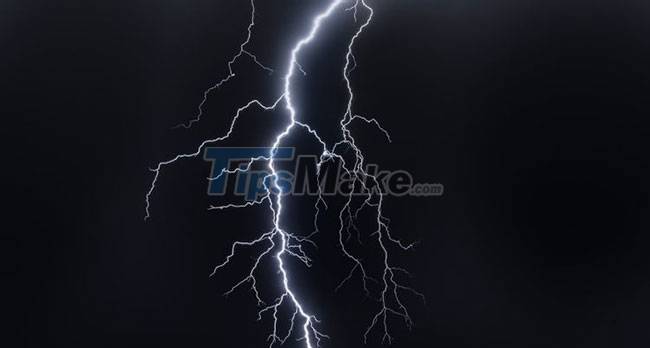6 great tips to help prolong speaker life
It is imperative that you take good care of them from the start to ensure the best performance of your speakers in the long run. A good pair of speakers can last an amazingly long time if you take good care of them.
Here are some of the best tips to make your speakers always look and sound great.
1. Avoid dust on the speaker
Dust is not only aesthetically unpleasant; It is also the most common problem with speakers. Did you know that dust particles have the ability to get into the wire terminals and damage the electrical signal inside the speaker?
If not, be extra vigilant! Dust not only adds annoying noise to the speaker system, but it can also damage the internal wiring. The question is, how do you prevent dust from damaging the speakers?
First, it's best to place the speaker in a room or area that doesn't accumulate a lot of dust. It's hard to find a spot that doesn't accumulate dust at all, so the next simple step is to store your speakers in a protective case and clean them regularly.
2. Clean the speaker regularly

Just like cars, you need to clean your speakers regularly to help them deliver clear, balanced, and crisp sound. As mentioned before, dirt can be irritating and shorten speaker life.
Here's what you need to know about speaker cleaning. First, always check the instruction manual first for the correct cleaning steps, and never use harsh cleaning chemicals, especially those containing alcohol or ammonia.
When you clean the speaker, always be gentle. Use a soft sponge, vacuum cleaner or a clean and dry cloth. Avoid using liquid cleaners as they can damage the speaker and remember to take time while cleaning to avoid any problems that could damage the speaker.
3. Place the speaker in a well-ventilated place
The speaker system needs to stay cool during operation, or the device may overheat. Always make sure that there is a cool flow of air around the speaker, especially if it is a hot day.
Enthusiasts who are passionate about high-end sound quality will recommend using fans to blow on the speakers while they are in operation to ensure the speakers stay cool.
A simpler trick, however, is to simply place the speaker in a position that's well-supported for ventilation. Place your speaker system more than 10cm away from a wall, cabinet or tight space.
The right amount of ventilation not only ensures that your speakers will last longer, but also enhances the overall sound quality. If you leave the speaker in a tight space, the vibrations it creates will affect the sound and this can damage your speakers.
4. Avoid direct sunlight

Always place your speaker system away from a window and out of direct sunlight. Exposing your speaker to the heat of the sun can cause it to overheat and be severely damaged.
Overheating is easy for speakers because of their compact design. This will result in the voice coil becoming functionally impaired. The voice coils are very important in supporting the current between the speaker and the source.
If you don't want to seriously damage your speaker systems, keep them out of the sun and any particularly hot areas of the house. If you are using them outside or on the patio, be sure to place them in a shady place and avoid overexposure to heat.
5. Keep away from static electricity
While dust and heat are the main problems speakers face, another serious problem is static electricity. But what is static electricity and how does it affect speaker systems?
Static electricity is a phenomenon that occurs when there is an increase in electrical charge on the surface of objects. Often due to friction, it can create sparks or crackles. This is not good for electrical equipment and a build-up of static electricity can short-circuit the speaker system.
You can accidentally walk across the carpet, create friction, hit the speaker and create a short circuit. A short circuit can cause serious damage, but static electricity and its damage can be avoided.
Consider purchasing an antistatic floor mat or a humidifier. A humidifier can help prevent dry air in the speaker room. Dry air is a conductor of static electricity and can cause it to build up to harmful levels, and a humidifier will effectively combat it.
6. Protect the speaker from electric shock

Sudden voltage spikes can seriously damage your speaker system as well as all of your other electrical equipment.
There are two main types of sudden voltage spikes - blackouts (typical for household power) and lightning strikes, which can directly affect your speaker system.
Fortunately, protecting your speaker system from sudden power surges, such as lightning strikes, is fairly straightforward. Consider purchasing a surge protector or a UPS device (backup power supply).
The surge arrester will redirect auxiliary current to the ground wire if the voltage exceeds a specific level. On the other hand, a UPS will provide backup power when your standard power supply is cut.
These are great ways to reduce the risk of voltage spikes that could damage your speaker system. See also: Proper care to prolong the life of your headphones for some other helpful tips for this audio device.
You should read it
- ★ Top 3 models of karaoke speakers are the youngest favorite today
- ★ The easiest way to connect speakers to TVs
- ★ Good tip for laptop speakers to be durable
- ★ What is the hot SoundMax M-1 speaker that young people are crazy about?
- ★ Check out the notable Bluetooth speakers that Anker will launch this year